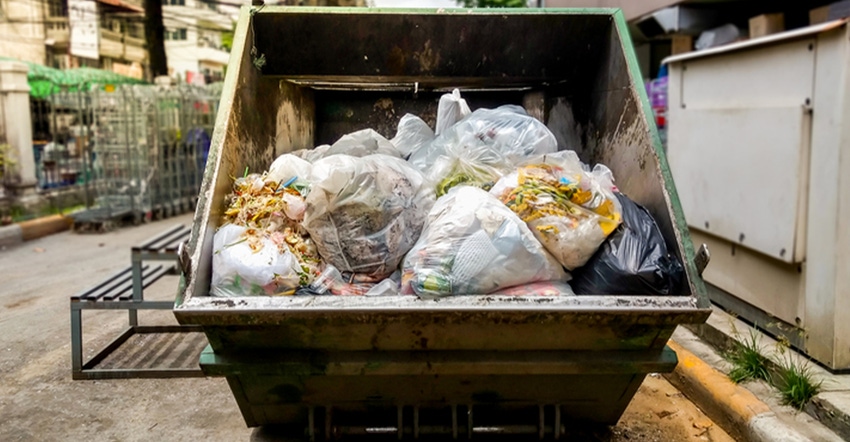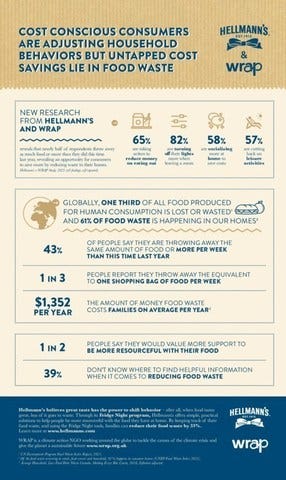Hellmann's and WRAP have published a study indicating how much food waste is costing households and the planet. Respondents provided insight via a survey across Canada, U.S., UK and Australia to gather data about the latest food waste behaviors. Half of those who answered questions said they continue to toss "as such food or more than they did this time last year."

Hellmann's and WRAP have published a study indicating how much food waste is costing households and the planet.
Respondents provided insight via a survey across Canada, U.S., UK and Australia to gather data about the latest food waste behaviors. Half of those who answered questions said they continue to toss "as such food or more than they did this time last year."
Richard Swannell, international director, WRAP, commented that "With this research we set out to uncover whether amidst the rising cost pressures for households, are people placing greater value on food and wasting less? Or is our waste just costing us more? According to our research, 85 percent of people report that their food bills have increased, however, people are still wasting the same amount of food (or more) than last year. We were excited to see some people were wasting less food, but clearly too much good food is ending up in the bin. After years of research, we understand that the barriers to reducing food waste are complex. However, easy, practical shifts in the home can make a big impact – not only to our wallets, but also to the planet."
Food waste costs an estimated $1,352 per household annually, with half of the respondents not realizing the cost savings that could be made by reducing food waste. They also did not know where to begin when it came to being more resourceful with food - with 39 percent saying they didn't know where to find educational materials about food waste.
However, 74 percent of respondents reported using a shopping list as a way to prevent food waste, 61 percent said they are planning meals in advance and 58 percent are freezing fresh and leftover foods.
"No one sets out with the intention of throwing good food away," explained Kristen Denega, Canada Hellmann's market lead & NA (North America) Innovations. "The lack of time or energy are often the main drivers of food waste. Through our research, we discovered Canadians didn't have access to resources to help them, but they were keen to improve their skills and confidence to shift behavior and reduce food waste. Our work with WRAP is intended to respond to that request and provide tools to make the most of the food they have on hand. We are confident that with practical solutions, people will be able to keep track and think differently."
Sixty percent of Canadians indicated they wanted brands and manufacturers to assist them with preventing food waste.
Edelman Dxl conducted the research in June and July 2022.

About the Author(s)
You May Also Like




